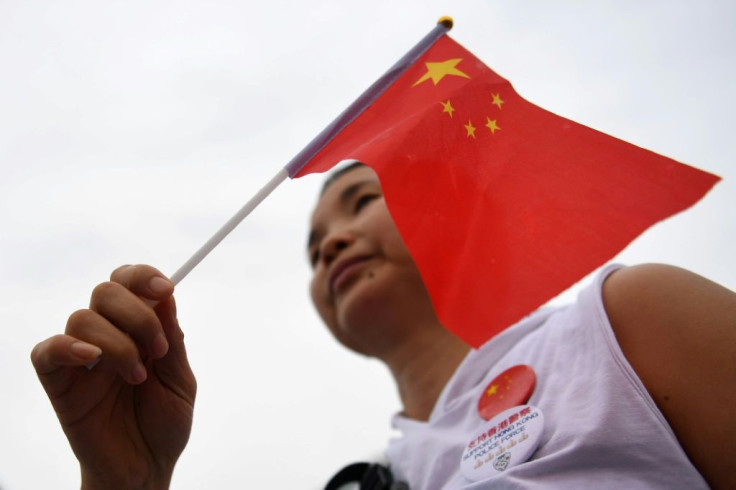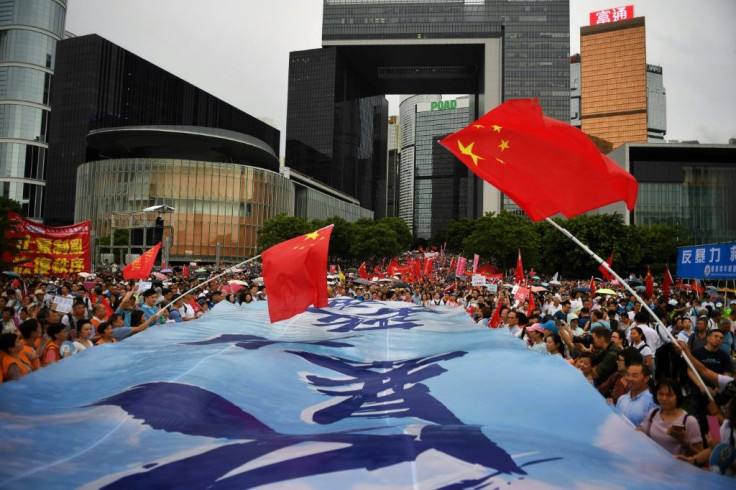Hong Kong Jails Chinese Tourist For Defacing US Consulate

An unemployed man was sentenced to four weeks in jail for his Aug. 18 attempt to spray paint “China will Prevail” in Chinese on the front gate of the U.S. consulate general in Hong Kong.
Qin Jingjun, age 37, claimed that he was showing his discontent of what he believes to be foreign meddling in recent protests directed against Hong Kong’s government.
Qin told the police after he was arrested that his act of vandalism was to show his displeasure at what he believes is the United States' involvement in the protests. He pleaded guilty to one count of criminal damage. Qin did manage to write the first two words but was thwarted by a security guard before he could add the final word “prevail."
Principal Magistrate Bina Chainrai said prior to sentencing, “That is really not a justification for the damage he had done. It is not acceptable in this court”. Qin’s lawyer tried to describe the act of vandalism as a “momentary impulse,” but this was rejected by the court because the can of spray paint was purchased in mainland China before being brought to Hong Kong by Qin, indicating some premeditation.
Qin’s actions are one of several displays of Chinese nationalism that have occurred around the globe in response to the pro-democracy protests that have plagued the former British colony for nearly three months. In Britain and Australia, Chinese citizens have gathered to protest the marches in support of the Hong Kong demonstrators. In Melbourne, an Australian journalist was attacked by a demonstrator with pro-Beijing views.
Perhaps the strangest occurrence of Chinese nationalism was in Canada, home to thousands of wealthy Chinese migrants. In Vancouver and Toronto, groups favoring the Hong Kong protesters faced off against pro-China groups while drivers of luxury sports cars like Ferraris, Porsches, Aston Martins and McLarens drove past the demonstrators, waving Chinese flags and gunning their engines, eliciting cheers from the pro-China contingent. Supercars draped in Chinese flags have become a strange symbol considering the plight of many in Communist mainland China.

Kevin Huang Yi Shuen is the executive director of the non-profit Hua Foundation which is based in Vancouver’s Chinatown and works with Asian diaspora youth. He is a supporter of the Hong Kong protesters and doubts that the motorists had any effect in swaying Canadians to the pro-China side.
He called it an act of “conspicuous consumption” in a city that was undergoing a housing affordability crisis, partly blamed on Chinese money. Huang said, “These are people who don’t understand that narrative or the Vancouver community very well.” Meanwhile the protests continue in Hong Kong.
© Copyright IBTimes 2024. All rights reserved.





















